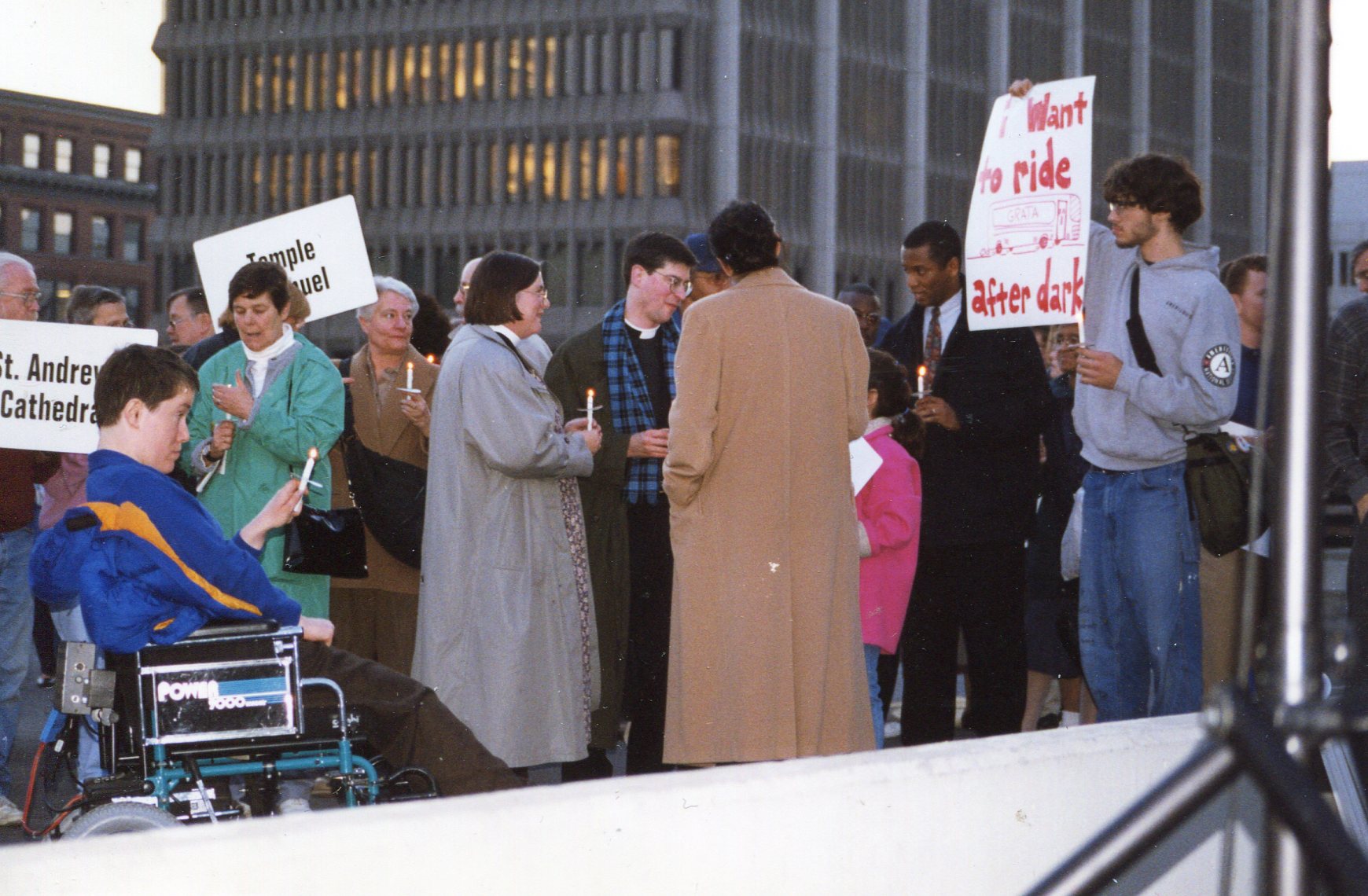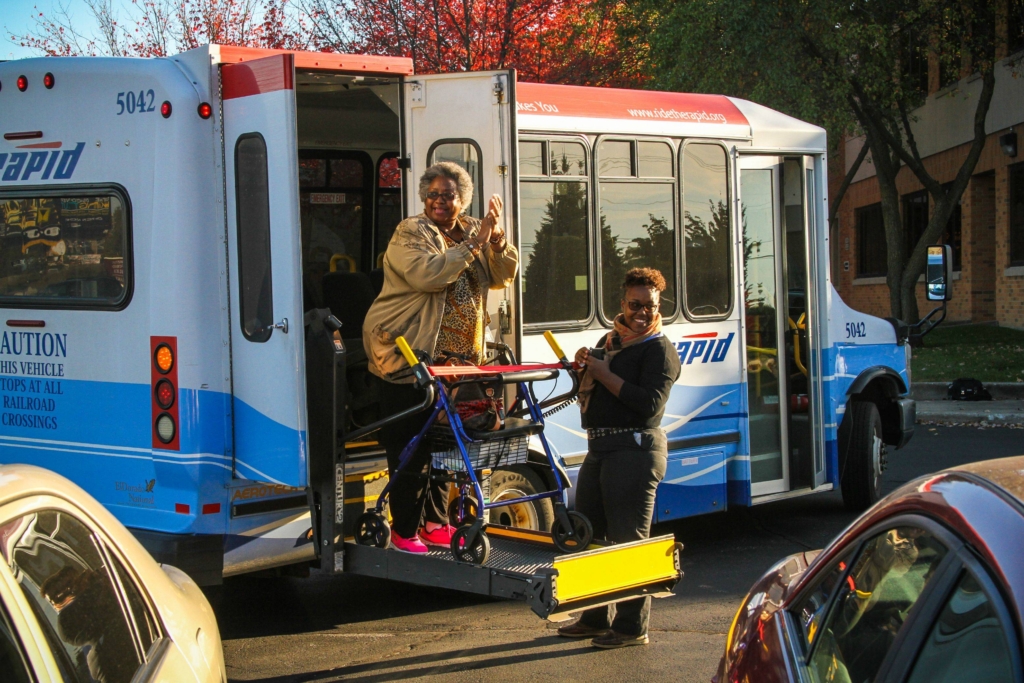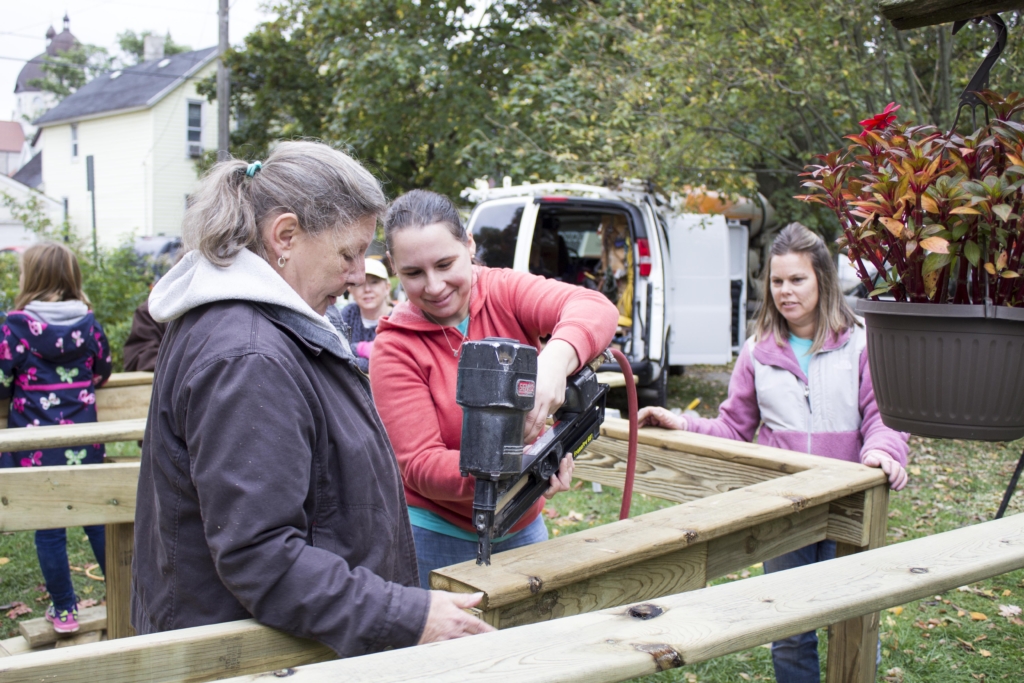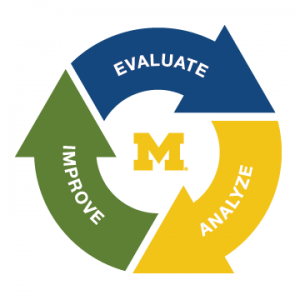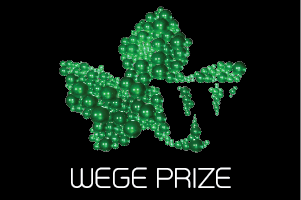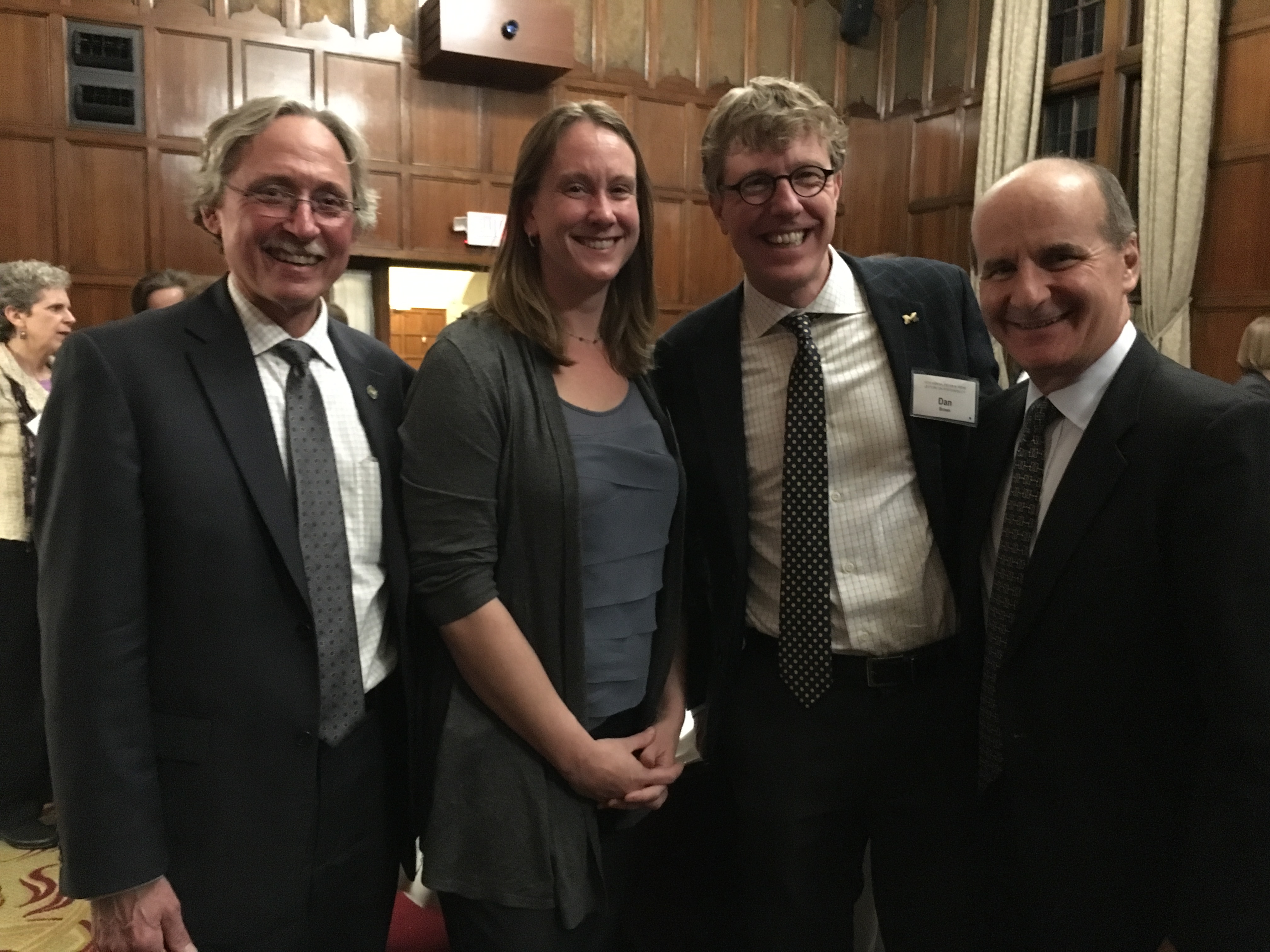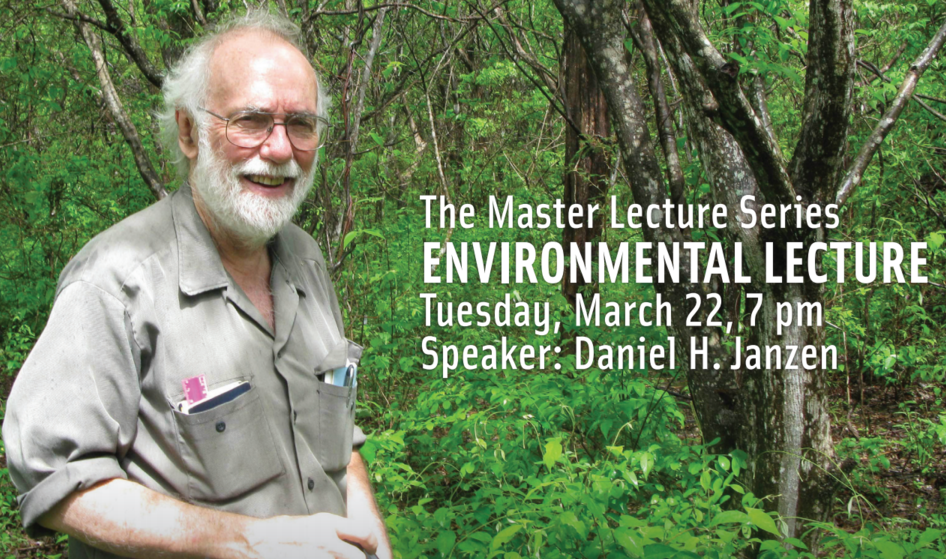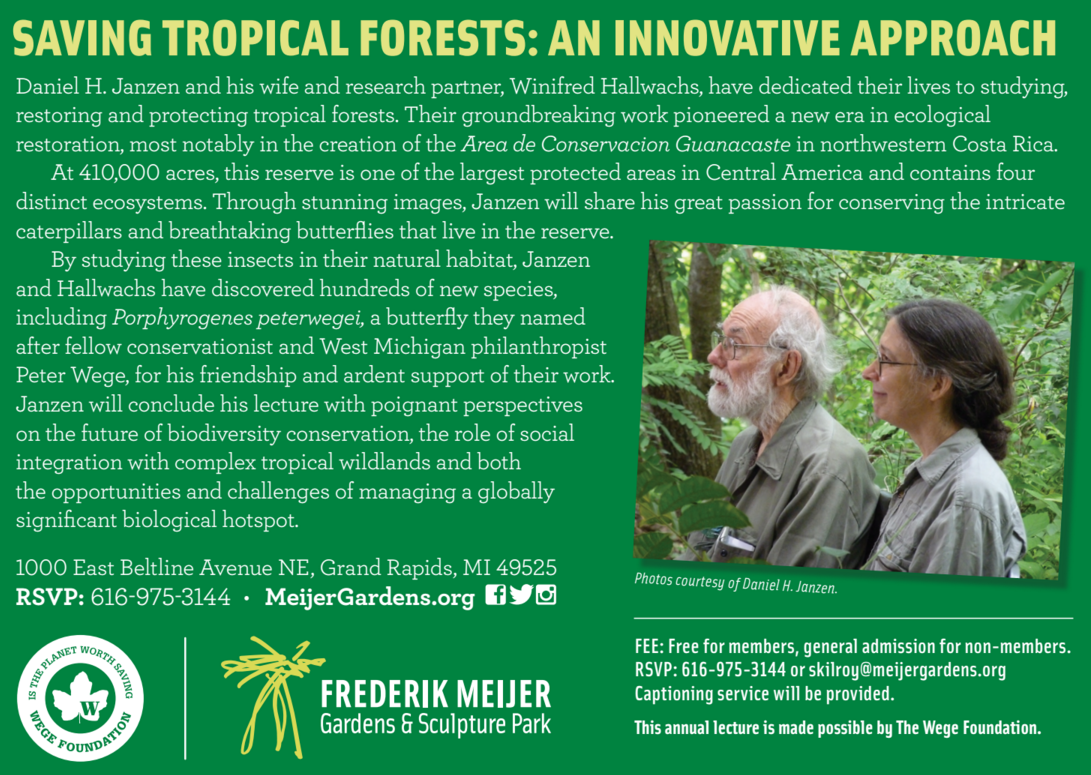$444,000 grant awarded to Kendall College of Art and Design of Ferris State University’s Wege Center for Sustainable Design to extend Wege Prize competition for four years
2016 competition concludes May 14 – open to the public
Kendall College of Art and Design of Ferris State University’s (KCAD’s) Wege Center for Sustainable Design has been awarded a $444,000 grant from the Wege Foundation to continue running the Wege Prize student design competition for the next four years. Open to any undergraduate student in the world, the international competition challenges transdisciplinary teams of five to design a product, service, or business model that can function within and facilitate a paradigm shift toward a circular economy, an economic model in which resources and capital are regenerative.
Through the lens of the circular economy, past Wege Prize participants have developed compelling solutions to formidable social and environmental issues such as the rising costs and environmental impact of mass food production, the harmful buildup of low-density polyurethane plastics in nature, and barriers to accessing renewable energy. Such challenges are known as “wicked” problems due to their systemic complexity and resistance to solution.
Wege Foundation CEO Mark Van Putten says Wege Prize offers a unique opportunity for students to integrate their own knowledge and perspective with that of students working in other fields and institutions to produce a meaningful impact on the world.
“Students are conscious of the environmental and economic crises facing their generation,” Van Putten says. “Wege Prize is an experience that empowers learners to collaborate in the pursuit of sustainable global development.”
Wege Prize began in 2014 as a regional competition but grew quickly, expanding to an international scale for the ongoing 2016 competition, which has drawn participation from students in the Netherlands, the United Kingdom, and Costa Rica in addition to the United States. International students from China, Nigeria, and Kenya who are studying abroad in the U.S. are also participating.
KCAD’s Wege Center for Sustainable Design will continue to conduct Wege Prize annually through 2020 with the support of the Wege Foundation. Organizers aim to expand the scope of the competition’s growing impact over the course of the four-year grant, engaging an increasingly diverse group of international participants while continuing to nurture the cogency and viability of teams’ solutions.
“Wege Prize 2015 was our debut as a national competition, and this year it has become a worldwide endeavor,” says KCAD President Leslie Bellavance. “With this grant, we will continue to inspire innovation for transformative change in the years to come.”
The Wege Prize 2016 Awards will take place Saturday, May 14, 2016 from 9:30am – 2:30pm inside KCAD’s Woodbridge N. Ferris Building (17 Pearl St. NW, Grand Rapids, MI 49503), where the five finalist teams in this year’s competition will present their solutions in full to a judging panel of leading practitioners and advocates of design thinking and sustainability. The competition’s top award of $15,000 will be given to the winning team, with awards of $10,000 and $5,000 going to the second and third-place teams, respectively.
The Wege Prize 2016 Awards are free and open to the public. RSVP by visiting wegeprize2016.eventbrite.com.
The event will also be streamed live online at wegeprize.org starting at10 a.m. May 14.
For more information on the Wege Prize 2016 finalist teams, click here.
About Wege Prize:
Wege Prize, a West Michigan-born concept developed by Kendall College of Art and Design of Ferris State University (KCAD) with the support of The Wege Foundation, is a collaborative design competition that gives teams of college students the chance to work across disciplines, use design thinking principles, and contend for $30,000 in total cash prizes, all while helping to show the world what the future of problem solving looks like. The challenge is to design a product, service, or business model that can function within and help create a paradigm shift towards a circular economic model. To learn more, go to wegeprize.org.
About The Wege Foundation:
The Wege Foundation focuses on local good works in the Grand Rapids metropolitan region that enhance the lives of the people and preserve the health of the environment. The five pillars of the Foundation’s mission are, in rank order: Education, Environment, Arts and Culture, Health Care, and Human Services. For more information, please visit wegefoundation.org.
About KCAD:
Located in the heart of downtown Grand Rapids, Kendall College of Art and Design of Ferris State University (KCAD) is committed to creating lasting impact in West Michigan and beyond through collaborative partnerships, cultural innovation, and an educational model that prepares students for leadership in the visual arts, design, art history, and art education; provides innovative, collaborative education that fosters intellectual growth and individual creativity; and promotes the ethical and civic responsibilities of artists and designers, locally and globally. For more information, please visit kcad.edu.
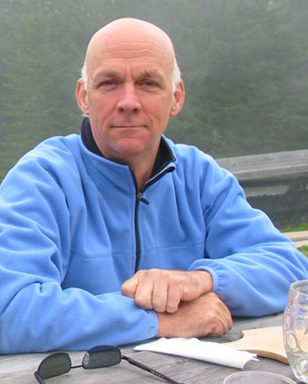 Dr. William Clark, Harvard Professor at the John F. Kennedy School of Government, delivered the 15th Peter M. Wege Lecture on Sustainability at the University of Michigan this fall. Dr. Clark began by saying he was a bit intimidated when he found out who the previous lecturers had been. “I might not have come if I’d known I was following the Dalai Lama!”
Dr. William Clark, Harvard Professor at the John F. Kennedy School of Government, delivered the 15th Peter M. Wege Lecture on Sustainability at the University of Michigan this fall. Dr. Clark began by saying he was a bit intimidated when he found out who the previous lecturers had been. “I might not have come if I’d known I was following the Dalai Lama!”


